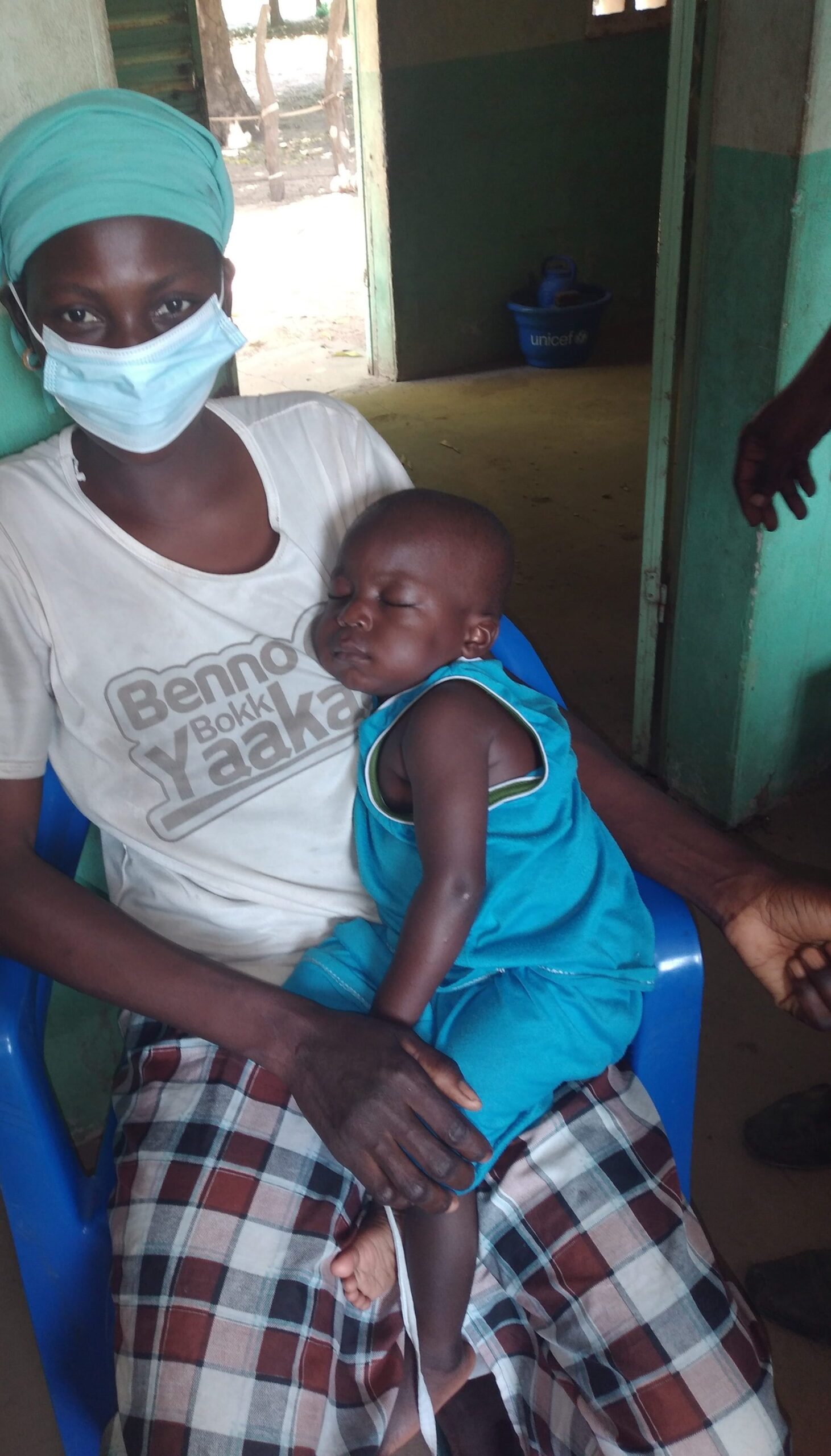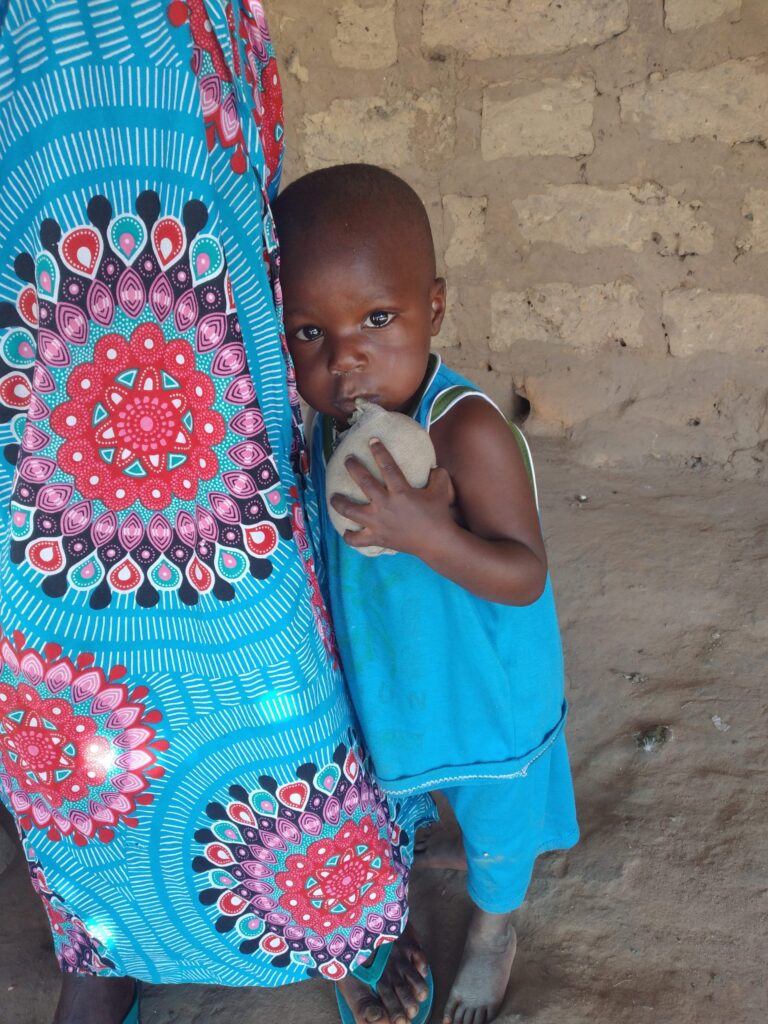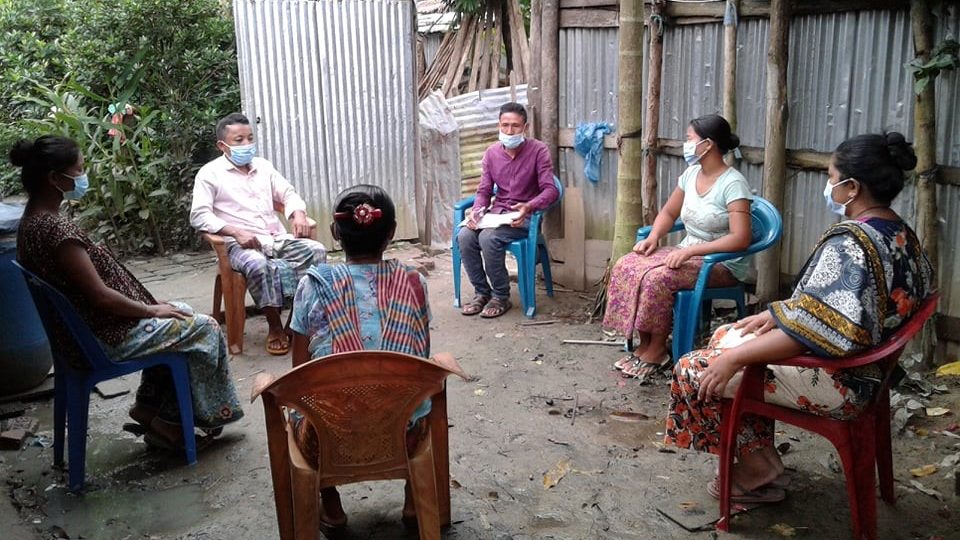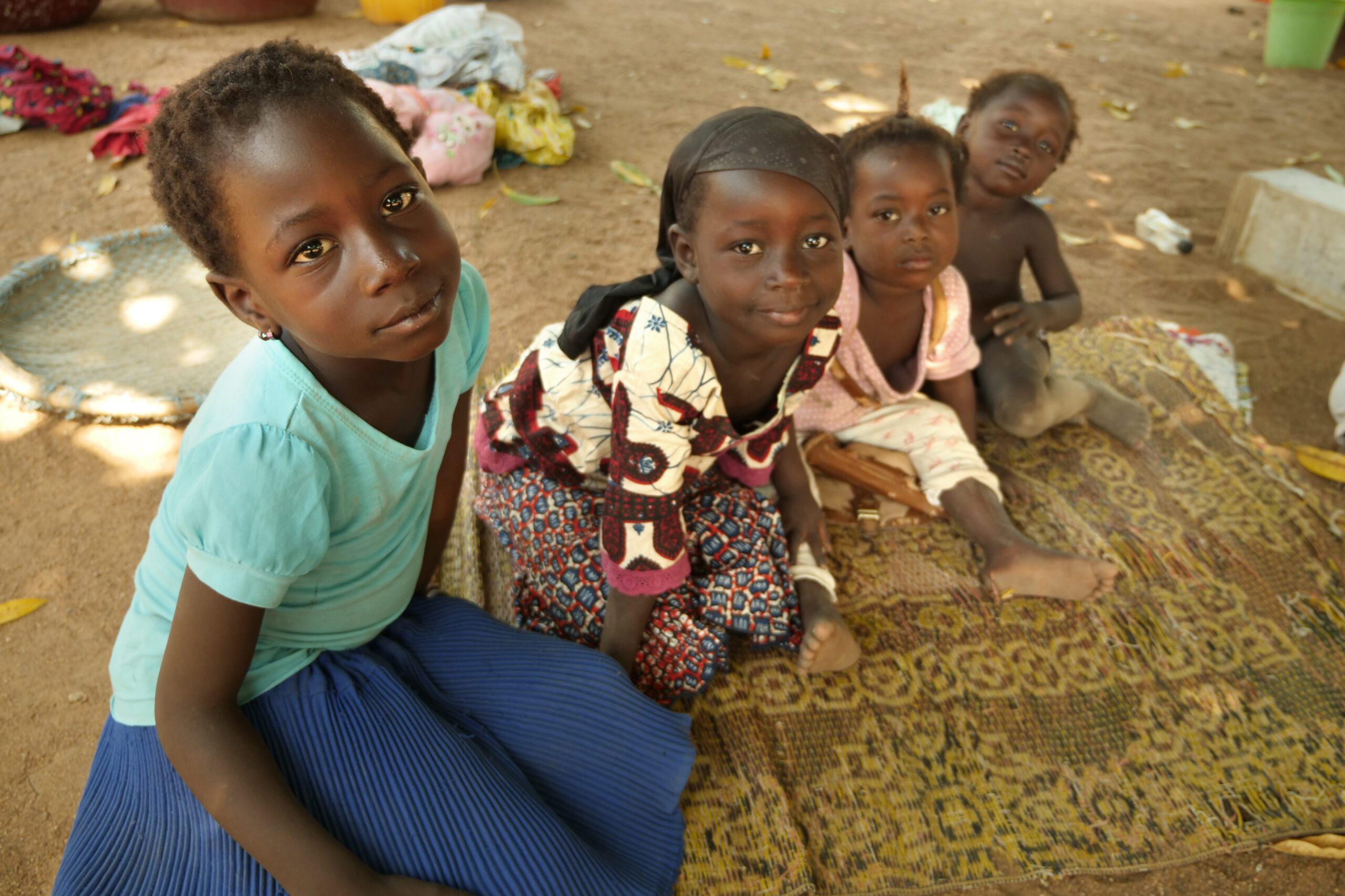Hunger Report: How we are combatting malnutrition and food insecurity
Our work in action
Helen Keller, our co-founder, envisioned a world without barriers to human potential. Guided by her fierce optimism, we have been working for decades to eradicate hunger and malnutrition worldwide. As a global pandemic endangered the world’s most vulnerable people, we responded swiftly, with a science-based strategy to address the far-reaching ripple effects of COVID-19, including rising poverty and extreme hunger.
A proven method to fight hunger
As we’ve all learned over the past year, COVID-19’s impacts extend beyond the deadly virus. In the communities where Helen Keller Intl works in Africa and Asia, many more children are likely to die from the indirect effects of COVID-19 – chiefly among them, greater malnutrition, hunger, and ill health — than adults are to die of the virus itself.
Thanks to valuable evidence, expertise, and strong local partners in the US, Africa, and Asia, we are meeting this crisis head-on. Implementing a rigorously tested strategy, we have already delivered so much positive — and lasting — change in some of the world’s most impoverished communities. And the work continues.
Together we are making a lifesaving difference
We are deeply grateful to our supporters for standing with us as we work to safeguard vulnerable families, and women and children in particular, from the dire effects of extreme hunger and malnutrition. When we come together as a global community and respond, we can face the deep inequities in our world with positive action. In Helen’s words: “Alone we can do so little, together we can do so much.”
Here’s how we are tackling some of the most serious impacts of COVID-19:
Priority 1 – Preventing malnutrition
We target malnutrition that threatens the health and wellbeing of infants, young children, and mothers. There are direct and indirect causes of malnutrition. These include hidden hunger, which happens when people don’t get the right micronutrients, like iron and vitamin A, that are vital to fighting disease and ensuring healthy growth and development. Other major causes of malnutrition are disease, insufficient access to nutritious food, inadequate health care, unsafe drinking water, and poor knowledge of the vital care and feeding practices necessary for a baby’s healthy start.
Children’s nutrition depends on a large social safety net. Thus, we have adapted new interventions for treating malnourished children with large-scale impact and long-term sustainability in mind. We focus on providing locally produced enriched foods to the entire population. This approach benefits not only children, but whole communities.
Evolving our approach to improve outcomes in local communities
We are also innovating by introducing new local-level approaches to diagnose and treat malnutrition. These are simpler, less expensive, and can be administered by trained community members, saving families a weekly clinic visit. While many of these localized strategies were developed before the pandemic, COVID-19 was a catalyst to adopt them quickly. As one of our colleagues likes to say, “Never let an emergency go to waste.” COVID-19, like other emergencies, can bring out the best in people, manifest the most effective ideas, and spur communities into action.
Our work in action: A community-based approach to eliminating malnutrition in Senegal
Communities in southern Senegal have been hard hit by COVID-related food insecurity. A staggering 30% of the population does not have access to sufficient — or nutritious enough — food.
To meet the needs of the moment, we built upon our long-standing programs. We provided a dedicated fleet of community health workers with additional training to more effectively screen and treat malnutrition at the local level. These workers now offer services that include monthly weight monitoring for children, malnutrition screenings, treatment of moderate and severe acute malnutrition without complications, vitamin A supplements, and deworming treatments. They provide these services while taking precautionary measures to protect against COVID-19. Furthermore, they educate the community about how to take preventative measures themselves.
“This localized strategy has come at the right time, because even before the pandemic, people needed a nearby place to go for this kind of care,” said Ndeye Fall, Nutrition Assistant for our project team in Senegal. “People would be diagnosed and referred to clinics for malnutrition treatment, but they wouldn’t always go to the appointments because they were too far away. During the pandemic, this problem worsened because people were also afraid to go to a health center. They wanted to stay within their community to limit their risk.”

Now, with the health workers closer and distribution more localized, mothers and children don’t have to go far to get the quality care that they need. For example, Siré Sadio, a young mother of six children in the Sedhiou region of Senegal, brought her baby Ibrahima for a screening in her local community. Ibrahima was so thin and weak that he could not walk like other children his age. “I would put him on my back all the time to do my household chores. Everyone told me that my child had a mysterious illness, so I took him to the traditional healer, but I didn’t see any changes. He was still weak and couldn’t walk. When I finally brought him to the local health post, the community health worker examined him and explained that he had severe acute malnutrition. He said that the health post workers could manage Ibrahima’s care until he was fully recovered. I was so relieved. I thought they would refer me to the clinic [further away], and I did not have the means to get there.”
The simplified approach used to treat Ibrahima will result in a better rate of coverage for malnourished children. Local community interventions include giving Plumpynut, a lifesaving nutritional supplement, to severely malnourished children and providing children and pregnant women with compound flour that helps enrich their diets. Community members also have access to information sessions on infant and young child feeding.
“It’s a strategy that will help people well beyond COVID-19. It addresses the major access barriers to health care services that so often limit effectiveness,” said Fall. “While the pandemic catalyzed this approach, it will have benefits far into the future.”

Ibrahima’s mother has already noticed a big change. Now her son is eating properly. He has put on weight and he is walking. He is not the only malnourished child who has recovered in this village.
“I am relieved, because before the screening, everyone told me that my child was disabled. Now I am so grateful for Helen Keller’s program. It has helped my child recover with nutritional supplements and other protocols. I am so thrilled with all the visible changes in my child. I give thanks to God because now Ibrahima runs and plays with the other children. “
COVID-19 has had devastating impacts in Senegal, including a loss of income in 87% of households. Since November 2020, a second wave of COVID-19 in Senegal led to a resumed curfew. This is exacerbating the situation and making access to diversified food difficult. But with support from our donor community, these new best practices are making a significant impact during a time when nourishment is desperately needed:
- 17,400 packets of Plumpynut, a life-saving nutritional supplement, have been delivered to severely malnourished children in Senegal since our new approach was put in place. This compares to only 89 packets previously, when a trip to a clinic was required.
- The localized approach is improving detection and cure rates for children. We have increased detection of malnutrition from 5,364 children to 7,287 children. The cure rate, meanwhile, has improved from 72% to 87%.
- Children and families also attend appointments at higher rates as a result of our localized approach. Previously, 18% of families would miss their follow-up appointment. With the new approach, drop-off has lowered to 13%.
- These numbers represent just a few months of recent implementation of the simplified community-level approach. With on-site monitoring, supervision and mentoring, we hope to have even better results in the future.
Priority 2 – Continuing our life-saving services with new pandemic safety measures
Amidst new concerns brought on by the pandemic, we took extra steps to ensure immunity-building vitamin A reached children at risk. This led us to prioritize vitamin A supplementation, one of the most effective known public health interventions. A small capsule, given every six months to children five and under, can prevent blindness and death. That’s why it has been crucial to continue these efforts safely.
Initially, lockdowns and safety concerns forced Helen Keller Intl to pause vital activities. However, with our programs more important than ever to underserved communities, we had to find ways to safely get back to work. In countries including Mali, Niger, and Guinea, we’ve worked closely with partner governments to find ways to keep families and staff safe, including handwashing and mask-wearing. And we pivoted from campaigns that administered vitamin A en masse to campaigns that administered vitamin A household by household.
Our work in action: Finding new ways to administer Vitamin A in Kenya
In Kenya, community health volunteers got back to work administering vitamin A to children, adopting new methods for the pandemic. Volunteers wear masks and use hand sanitizer as they go door to door. Their actions have helped sensitize people on the dangers of COVID-19 and precautions they, themselves, can take to protect their families. These lifesaving measures have gone smoothly despite the added challenges. Lucy Juma is a resident of Bungoma, a bustling town nestled in the green rolling hills of western Kenya. She said, “I thank my village doctor for bringing my child vitamin A and deworming tablets. This will give her good health, good eyesight, and the well-being of her body.”
With support from our donor community, we’ve continued our crucial efforts to distribute vitamin A and other lifesaving supplements:
- Despite the COVID crisis, close to 15 million children were reached with Vitamin A supplements in 2020.
- Despite the challenges posed by COVID-19, in 2020 we supported the delivery of vitamin A supplementation in all 11 African countries where we do this work.
Priority 3 – Combatting hunger by building up the local supply of safe and nutritious food
The pandemic has shown us how communities are at risk when the most nutritious foods, such as fruits, vegetables, and eggs, are subject to shortages and price spikes. We are building long-term resilience to COVID-19’s tidal wave of hunger by intensifying our support for local farming that produces nutritious foods. When food supply chains are disrupted — as they have been during COVID-19 — nutrition suffers. In areas of greatest risk, such as in Bangladesh, Myanmar, Nepal, and Vietnam, we are sharing resources with home gardeners and supporting local agricultural production. This way, when global food supply is impacted, community health stays strong.
Our work in action: Local business advisors go virtual to bolster food supplies in Bangladesh

In the remote Chittagong Hill Tracts region of Bangladesh, we are working to reduce the impact of COVID-19 lockdowns by increasing agricultural production and improving nutrition. Stringent lockdowns in response to the pandemic made it difficult for households that grow produce to access markets and sell their surplus products. However, we had previously identified and trained “Local Business Advisors” to work with communities to facilitate bulk sales and price negotiation. They were instrumental during the pandemic. The Local Business Advisors transitioned to virtual events where they connected buyers and sellers, enabling a strengthened food supply chain throughout the lockdown period.
Innovation for the future
While we’ve responded quickly to continue our life-saving work during the pandemic, we’re also looking ahead. We’re developing new interventions with huge potential to impact nutrition and hunger. Your support will fund groundbreaking research and science to tackle our global hunger crisis.
Here’s a glimpse of what is in the works:
- Multiple micronutrient supplements. These supplements, delivered to pregnant women, have been shown to improve the health of mother and baby. They are better tolerated than iron and folic acid alone. We are working in countries such as Sierra Leone to get these supplements to the women who need them and to confirm, on a large-scale, their positive impact on nutrition.
- Lipid-based nutrient supplements. These are mixtures of essential nutrients, formulated for toddlers as an add-on to their regular food. They have been shown to reduce mortality.
We are more connected than ever, and your support is vital
COVID-19 has devastated the globe, but it has also shown us that we all share hopes, concerns, and aspirations. Helen Keller, our co-founder, believed that “the welfare of each is bound up in the welfare of all.” We are working to eradicate hunger and your vital support is urgently needed to ensure that we can achieve Helen’s vision — a world where families have no barriers to reaching their full potential. This work — this future — is only possible when we all commit to this vision together. What can we do, if we – our global community of donors, staff, and partners – all work together? How much more can we achieve? As Helen put it, “When we do the best that we can, we never know what miracle is wrought in our life, or in the life of another.”

Donate now to provide vulnerable families around the world with the essential resources and information they need to protect themselves in the face of crisis – and beyond.









